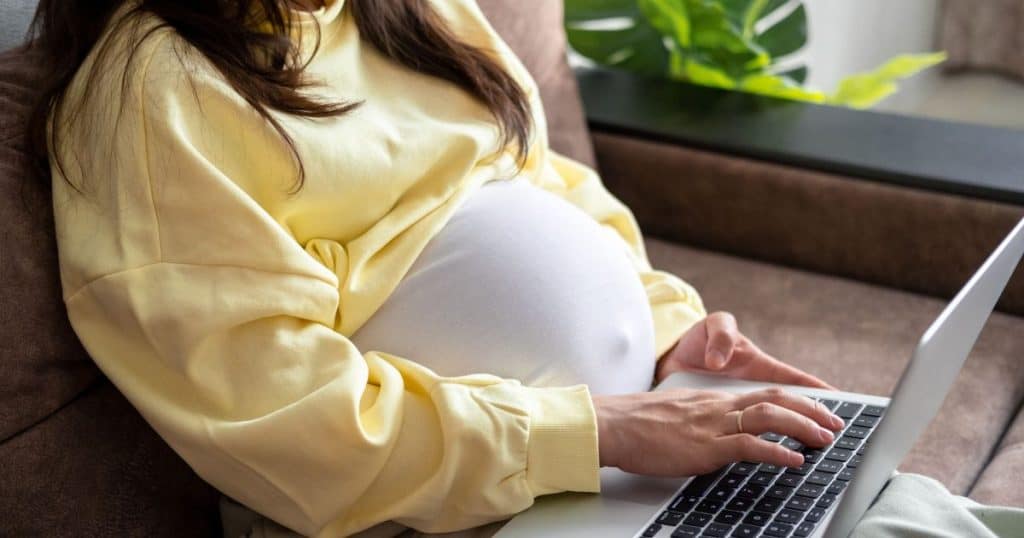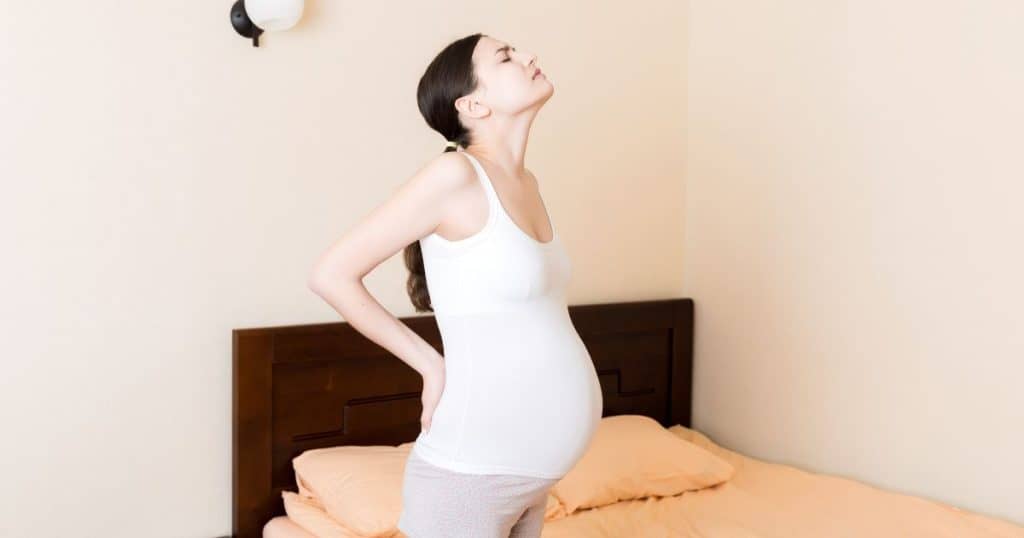Are you pregnant?
Congratulations! You’re about to embark on an incredible journey.
Pregnancy is a time of change and growth for both mother and baby. And your hormones are playing a big role in all of it.
Learn more about the six main pregnancy hormones – estrogen, progesterone, human chorionic gonadotropin (hCG), relaxin, oxytocin, and prolactin.
These pregnancy hormones work together to support your pregnancy and ensure the health of your developing baby.
6 Pregnancy Hormones

Here are the six main pregnancy hormones and what they do:
1. Estrogen
Estrogen levels rise rapidly in early pregnancy. This hormone helps to thicken the lining of the uterus, which is where your baby will implant and grow. Estrogen also helps to develop your baby’s sex organs.
2. Progesterone
Progesterone levels also rise in early pregnancy. This hormone helps to prepare your body for implantation and pregnancy. It also relaxes the muscles of the uterus, which is important for the growth and development of the baby.
3. Human Chorionic Gonadotropin (hCG)
hCG is produced by the placenta and is responsible for maintaining progesterone levels during pregnancy. This hormone also helps to stimulate the production of milk in the breasts.
4. Relaxin
Relaxin is a hormone that relaxes the muscles and ligaments in the pelvis. This allows the pelvis to expand during childbirth.
5. Oxytocin
Oxytocin is produced by the pituitary gland and is responsible for stimulating contractions during labor. It is also involved in the production of milk for breastfeeding.
6. Prolactin
Prolactin is another hormone involved in the production of milk for breastfeeding. It also helps to suppress ovulation, which is important for preventing another pregnancy while you are still nursing.
These six hormones play an important role in supporting your pregnancy. They work together to ensure the health of both mother and baby.
Read our article to learn more about these 6 pregnancy hormones!
The Six Pregnancy Hormones and Their Functions
Pregnancy is accompanied by a surge in hormone levels. Pregnancy hormones play an important role in supporting pregnancy and ensuring the health of the developing baby.
The six main pregnancy hormones are estrogen, progesterone, human chorionic gonadotropin (hCG), relaxin, oxytocin, and prolactin.
Estrogen and progesterone are produced by the ovaries and placenta. They help to thicken the lining of the uterus in preparation for implantation and support the development of the fetus throughout pregnancy.
hCG is produced by the placenta and helps to maintain the pregnancy by stimulating the production of progesterone.
Morning sickness is a common symptom of pregnancy, caused by the increase in hormone levels. It can occur at any time of the day but is most common in the morning. Symptoms include nausea, vomiting, and stomach cramps.
With the home pregnancy test, the hormone hCG can be detected in urine as early as two weeks after conception.
Relaxin is produced by the ovaries, placenta, and uterus. It helps to loosen ligaments and joints in preparation for childbirth.
Oxytocin is produced by the pituitary gland and plays an important role in labor, helping to stimulate contractions and promoting bonding between mother and child.
Prolactin is also produced by the pituitary gland and helps with breast milk production.
These six hormones work together to support a healthy pregnancy and ensure successful delivery.
How Does Each Hormone Change During Pregnancy?

Pregnancy is a time of great hormonal changes. The levels of estrogen and progesterone, in particular, increase dramatically.
Pregnancy hormones help to support the pregnancy and prepare the body for childbirth.
Estrogen helps to stimulate the growth of the lining of the uterus, while progesterone helps to maintain the pregnancy by preventing contractions of the uterus.
As the pregnancy progresses, pregnancy hormones level continue to rise, reaching a peak just before childbirth.
After childbirth, they begin to decline again, eventually returning to their pre-pregnancy levels.
These fluctuating hormone levels can cause a variety of symptoms, including morning sickness, mood swings, and fatigue.
However, they are essential for a healthy pregnancy and delivery.
Tips for How to Cope with Hormonal Changes During Pregnancy
Pregnancy brings a lot of changes, both physical and emotional. One of the most significant changes is the influx of hormones that can wreak havoc on your body.
From weight gain and morning sickness to mood swings and fatigue, pregnancy can be challenging to say the least. However, there are some things you can do to help ease the transition.
First, make sure to get plenty of rest. Pregnancy is exhausting, and it’s important to give your body the time it needs to recover.
Secondly, eat healthy foods and stay hydrated. This will help your body to better cope with hormonal changes.
Finally, don’t be afraid to ask for help when you need it. Whether it’s from your partner or a professional, seeking support can make a world of difference.
What Each Hormone Does for Both Mom and Baby

There are four main hormones involved in pregnancy:
Estrogen, progesterone, relaxin, and human chorionic gonadotropin (hCG).
Estrogen helps to develop the baby’s reproductive organs and maintain the uterine lining.
Progesterone in the first trimester assists in the development of the placenta and helps to prepare the breasts for milk production.
Relaxin allows the joints and ligaments to loosen and stretch in preparation for childbirth.
hCG helps to maintain the pregnancy by stimulating hormone production.
These hormones all play vital roles in ensuring a healthy pregnancy for both mom and baby.
Pregnancy is a life-changing event for any woman. For nine months, she undergoes a remarkable transformation as her body grows and changes to accommodate a new life.
During this time, she may experience a wide range of emotions, from excitement and anticipation to fear and anxiety.
She may also feel exhausted, nauseous, and uncomfortable. Despite all of these challenges, pregnancy is also a time of hope and wonder.
As the baby grows and develops, the mother-to-be feels a deep connection with her child, even before she meets him or her.
For many women, pregnancy is an incredible journey that is both demanding and rewarding.
Final Thought About Pregnancy Hormones
Hormones play a significant role in pregnancy, affecting both the mother and baby.
By understanding the functions of each hormone, women can better prepare themselves for the changes they will experience during pregnancy.
There are many ways to cope with hormonal changes during pregnancy; seeking advice from other mothers who have been through it can be very helpful.
Ultimately, pregnancy hormones work together to ensure a healthy and safe pregnancy for both mom and baby.




Leave a Reply
You must be logged in to post a comment.